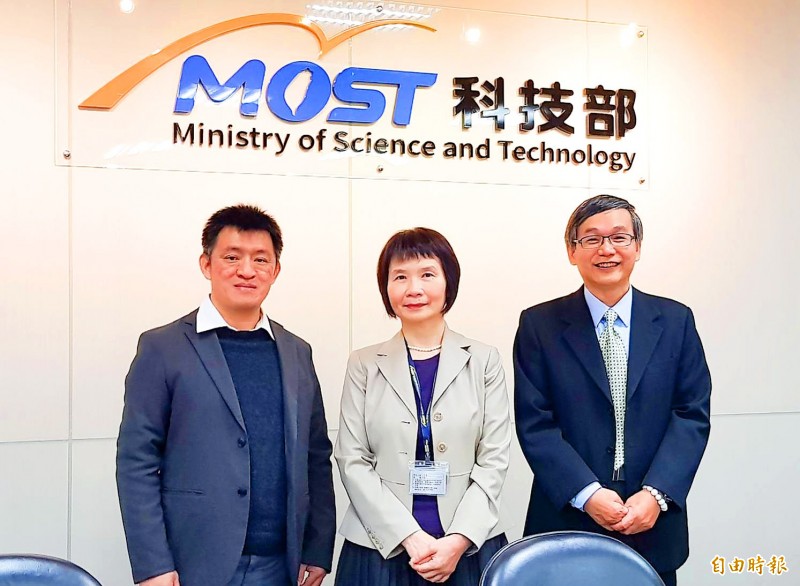《TAIPEI TIMES》 Efficient Taiwanese brains not that funny: researchers

National Taiwan Normal University College of Education dean Chen Hsueh-chih, right, and fellow researchers present their findings about humor at the Ministry of Science and Technology in Taipei yesterday. Photo: Chien Hui-ju, Taipei Times
By Lin Chia-nan / Staff reporter
Taiwanese generally do not consider themselves very humorous, while people who are prone to sarcasm have been found to have inferior brain efficiency, National Taiwan Normal University researchers said yesterday, citing surveys conducted over several years.
At a news conference at the Ministry of Science and Technology in Taipei, College of Education dean Chen Hsueh-chih (陳學志) shared his research on cultural and gender differences in humor based on quantified questionnaires and functional magnetic resonance imaging (fMRI) data that he accumulated over the past five years.
Chen said that he started studying humor and its related effects more than 20 years ago due to a desire to improve his own sense of humor, adding that the subject was not considered serious enough for academic research at the time.
In an international survey on how people evaluate their own sense of humor, Italians found themselves to be the most humorous, while Taiwanese ranked only 15th out of 25 nations and regions, Chen said.
Taiwan presented the biggest differences between men and women on self-perceived humor, with male respondents saying that they use more corrective humor, while female respondents leaned toward benevolent humor, he said.
The survey, which involved researchers from the University of Zurich and other schools, gathered 7,226 samples, mainly in Europe, and its findings were published in the journal Frontiers in Psychology last year, he added.
In another survey of only Taiwanese, Chen’s team divided humor into four types — self-promoting, self-deprecating, compassionate and sarcastic — and used fMRI data to measure respondents’ brain activity.
People who prefer sarcasm had weaker connections between various regions of the brain, while those who use compassionate humor demonstrated higher efficiency in those connections, Chen said, adding that the results suggest that aggressive humor pertains more to intuition.
Women were found to use compassionate humor more than men, perhaps because they are more empathetic and care more about interpersonal relationships, he said.
Meanwhile, people with Asperger syndrome can tell jokes, but they have difficulty doing so without hurting others’ feelings, he added.
Asked if Taipei Mayor Ko Wen-je (柯文哲) — who claims to have Asperger’s and often apologizes for remarks that provoke an undesired reaction — is an example of someone who uses more sarcastic humor, Chen said that Ko previously used more sarcastic humor, but appears to have modified his humor.
Asked about then-Taipei Agricultural Products Marketing Co general manager Han Kuo-yu (韓國瑜), who is now Kaohsiung mayor and the Chinese Nationalist Party’s (KMT) presidential candidate, saying that he was a “bald man following the moon” — a Chinese idiom for basking in the light of someone else, in this case Ko — when fielding a harsh question from a Taipei city councilor, Chen said Han’s remark is an example of self-deprecating humor employed to gain favor.
A person’s humorousness is not correlated to their IQ, he added.
Humor employed by politicians is hard to classify, as their expressions are part of their political performance and might vary depending on the occasion, Department of Educational Psychology and Counseling assistant professor Chang Yu-lin (張雨霖) said.
新聞來源:TAIPEI TIMES















